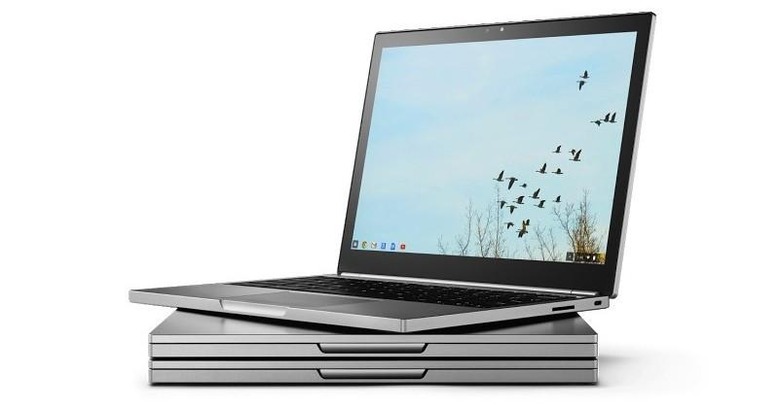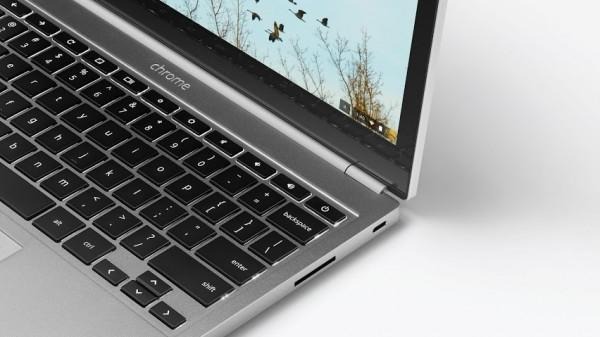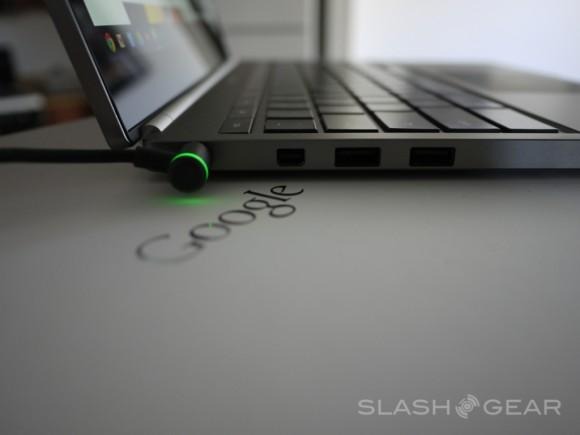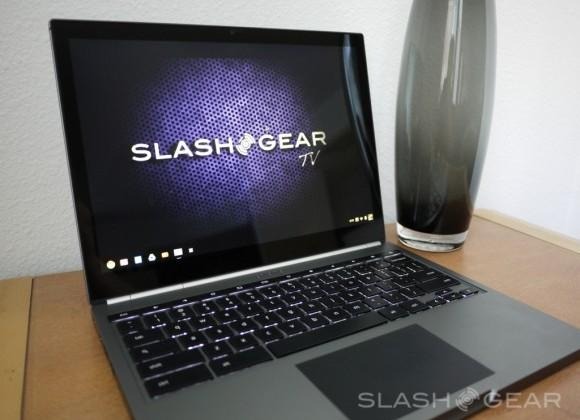Google-Branded Chromebook Processor To Herald A New Dimension
Google has forayed into a range of industries previously and it's now planning to manufacture its own silicon for the forthcoming Chrome OS-powered notebooks. Google's growing focus on developing in-house chipsets isn't new, this year however, it's only become more evident than ever before. Especially after an official teaser of Pixel 6 and Pixel 6 Pro, which will be powered by a custom system on a chip (SoC) that is named the "Google Tensor".
Google's intention to power devices– whether phones or Chromebooks – with a self-developed chip is severely influenced by its vision to pursue a path that other tech giants are treading in their bid to differentiate their products from others. Apple is the most prominent example of the same.
Inspiration
Apple builds its own silicon, which has played in favor of the Cupertino giant over the past decade or so. The finer integration of iOS and in-house A-Series processors has been the driving force behind the company's longer and swifter software updates, better performance and energy optimization. This advantage saves Apple the reliance on third parties and gives the manufacturer more flexibility and balance in hardware and software. This means the best for iPhones, iPads and with the integration of M1 chip, even for the MacBook now.
Samsung is persistently laboring with its Exynos processors; Amazon, Microsoft, and even Facebook are developing their own semiconductors to power their upcoming devices. It's hard to guess why Google would not want to embark on the silicon manufacturing journey.
Google, like most OEMs in the industry, has relied on Intel or Qualcomm for the chipsets to power devices. While in most cases this has panned out fairly well – save for the restrictions in software updates – the search engine giant was criticized for employing Qualcomm's midrange 7-Series chipset instead of the flagship chip in the last year's Pixel 5. Google justified the move to achieve power efficiency but that on the cost of processing prowess is unpardonable.
To change this, Google has kick-started the evolution with the Tensor chips for the Pixel phones and is reportedly on the way to do the same for Chromebooks. Inspired by Apple's profound success, Google is manufacturing its own ARM-based silicon for the future Chromebooks. This means, if all falls in place, the Chromebooks could run Google-branded processors as early as 2023.
Background
Google is the world's leading developer of mobile operating system. A major portfolio of smartphones – across manufacturers – run Android OS in their hearts. What Android does for Google in phones, Chrome OS does it in the Chromebooks. A range of manufacturers including ASUS, HP, Dell, Acer, Lenovo and Samsung use Chrome OS under license in their Chromebooks that have become the most compelling options in the education market.
Particularly in the pandemic, this market is aggressively dominated by Chromebooks, which have reported almost twice the sales figures in comparison to the previous years. This momentum is chiefly spurred by remote learning in the last one and a half or so.
Considering the operating system dominance, it is only fitting for Google to venture into the chip manufacturing domain for its towering advantages. For the record, Google has a portfolio of custom processors, but those are designed for machine learning and cloud data processing. This is the first time we are really learning about Google developing an in-house chipset for Chromebooks.
Google CEO Sunder Pichai had hinted last year about the company's inclination toward manufacturing its own hardware, which was followed by the first application processor in Google Tensor. The intention was clear since then that Google would eventually work on its own chips not only for the Pixel devices but for the Chromebooks as well, and now reports indicate Google is already working on expanding its in-house silicon production to other devices.
The chip
In the ongoing scenario, Chrome OS is paired to chips from Intel and AMD in Chromebooks. The rumored chip that Google is developing for Chrome OS notebooks and tablets, is based on blueprint of Arm, a SoftBank-owned chip company in the UK. Arm chips architecture is used in over 90-percent of the smartphones we use today.
Frankly, the technical details about the Google-branded Chromebook processor is scarce at this point in time. We will have to wait for a while before we can hear more about the chipset since it's only expected to make an obvious appearance as early as 2023. For those keeping a record, at this point the Tensor chip specs and abilities should be sufficient reference to suggest we are in for something stellar, to say the least.
While the information of Google chip for notebooks sounds as promising as exciting; it is not going to be an easy road ahead for the marque. Building a chip has its own share of investment and commitment.
Reportedly, 'the cost of designing a cutting-edge 5nm chip is around $500 million.' There is no doubt about Google has the skills and financial resources to pull it off; the global shortage of components will have Google toiling much harder to get its chips ready in the next two-year timeframe that's projected at the moment.
Final thoughts
Google's intent of chip development is a logical strategy despite the challenges ahead. Its own chipset will allow Google to program the hardware particularly for its software needs, since using an in-house chip should mean better integration of software and hardware for Google going forward.
Currently, Google's dependence on the likes of Intel, to power the Chromebooks, determines a lot as to what it can do with the devices. For a company such as Google which is overly focused on artificial intelligence, machine learning and voice assistant, the limitations on the hardware side are not progressive.
In-house chipset in tandem with Chrome OS will present Google with a self-paced and self-controlled environment of how it wants users to experience the Google-branded notebooks and tablets. This has been talked about at length in the context of Pixel phones (and will continue as Pixel 6 Series debuts).
With custom Chromebook chip then, Google can be at the helm of decision making. Eventually, a new dimension of longer software updates and better power efficiency can unfold!




